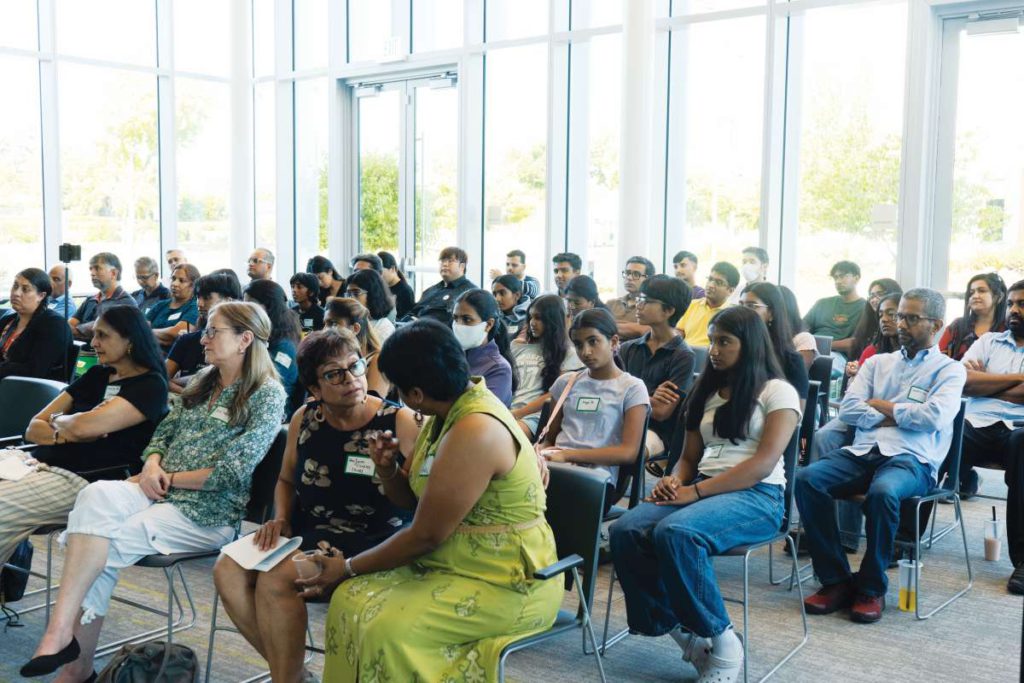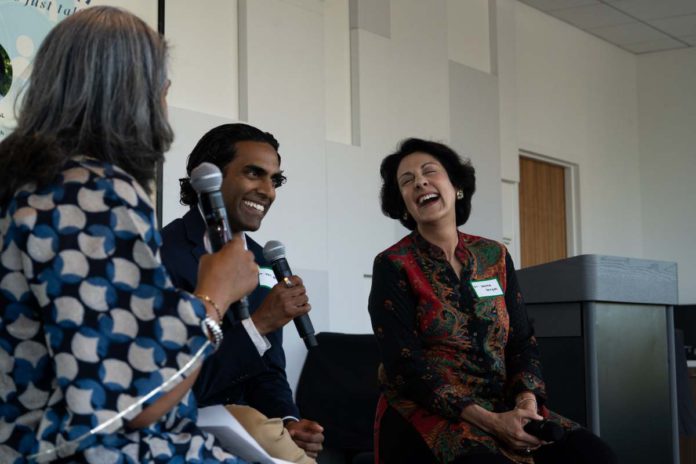“Chalo baatein karen,” a Hindi phrase, directly translates to “let’s just talk.” This term has become the name of a recurring discussion-based event organized by the nonprofit platform, Rcoz (Our Cause). As an organization, Rcoz strives to break down the stigma around mental health in South Asian communities.
“[The stigma] totally is [more embedded in South Asian communities] because we grew up with that,” says Roopali Rajvanshy, the founder of Rcoz. “So even though it’s like we all moved to America, we cannot leave our past behind.”
A Chalo Baatein Karen was held on June 29 in Newark Library to focus on the effects of social media on teens’ mental health. Alongside executive director Sruti Ramnath, medical professionals, a dedicated high school group, and other notable figures, the team was able to gather an audience of more than 60 people for the two hour discussion.
Students from the high school group were interns under Rcoz who helped create content and coordinate activities related to psychology in a nonclinical way. This Chalo Baatein Karen marked their capstone project, as all interns worked on finding sponsors and event organization. Without their contribution, this event may not have been as successful at reaching out to teenagers.
Ramnath says, “It’s just been amazing to hang out with young people and hear their thoughts. So, [I’m] really going to miss them.”

During the discussion, the audience was able to hear the thoughts of professionals, Dr. Seema Sehgal and Dr. Hari Nair, as well as a welcome address from the Fremont Mayor Raj Salwan. Salwan acknowledged the importance of having mental health discussions, as they are part of a well-rounded education for all demographics.
Speakers Sehgal and Nair discussed a multitude of topics, from the effects of social media on the brain, to how parents can initiate friendly conversations with their children.
“I took some really good points from there [about] reaching out to [teens] more in terms of maybe a middle ground,” says Roy Chacko, an audience member and parent. “To say what their perceptions are, and what I feel, and how we could work together to make it all easier for everybody.”
An especially hot topic of the discussion was how parents should regulate children’s screen time.
An especially hot topic of the discussion was how parents should regulate children’s screen time. Sehgal shared her own experience with her children, stating that she made sure to not let her kids develop an attachment to their devices too early on, although it may lead to conflicts, because now they thank her for not letting them get phones at a young age.
Going deeper into the conflicts device use causes between parents and their children, both speakers emphasized the importance of setting an example for the children to follow, not just in screen time. If a parent wants their child to talk to them, they should start by talking about themself to their child.
Towards the end of the discussion, audience members began asking more questions and soon enough, it was time to end. As the audience shuffled out of the room, they grabbed the complimentary drinks and snacks supplied from local sponsors Oh Chai, Duet Tea, Tandoori Pizza and Togo’s. Oh Chai in particular provided traditional Indian beverages such as ginger and masala chai, and Mandarin Muse cakes.
While high school intern Shreyas Jay was leaving the event, he reminisced on all that he experienced in his term.
“Through these four weeks I have learned so much about the issues South Asians and people in general go through in talking about their mental health struggles,” says Jay. “This has encouraged me to commit to a life of making change and breaking the stigma around mental health.”
rcoz.us
Note: This article was updated to reflect the correct photo credit.




